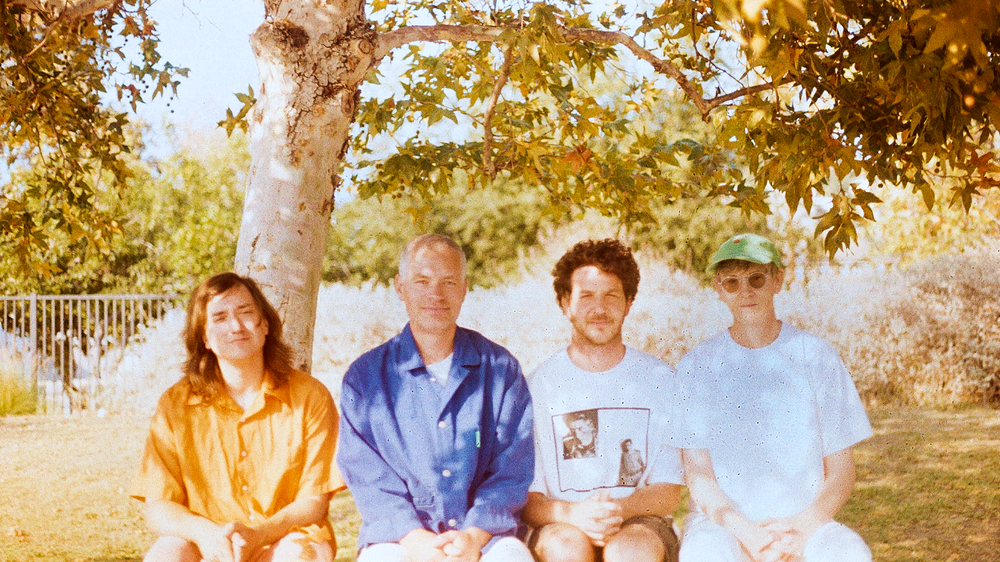Katy Davidson happily agrees with the perception that Dear Nora is a “cult” band. The Portland singer-songwriter’s ‘90s and ‘00s recordings under the name enjoy a small but fierce following among indie-rock fans and musicians, with artists like Joyce Manor and Girlpool—hardly household names, but titans in certain corners of the rock world—citing them as an influence.
And if the reception to Dear Nora’s recent East Coast tour is any indication, their new work—including Human Futures, released Oct. 28 on Orindal Records—is shaping up to be just as beloved.
“I think I would feel stifled if we showed up to our shows, played our new songs, and if it just landed with a thud,” Davidson says. “But people were singing along with the songs from the new albums just as much as the songs I wrote when I was 19. I was so heartened by that.”
Though Davidson is from the “tail end of Gen X,” they observe that “the front row was all basically, like, 22 years old.” This speaks, perhaps, to how Dear Nora’s music predicted the latter-day era of quiet, folky, observational, plainspoken indie rock. One of the band’s first engagements after reuniting in 2017 following a 10-year hiatus was performing with Big Thief, the popular New York roots-rock band whose earthy, elemental music has a good deal in common with Davidson’s.
Davidson’s songwriting has often acutely captured the milieu of the times. 2004′s Mountain Rock, one of their most beloved albums, was wracked with post-9/11, early Bush-era dread. And Human Futures is filled with playful references to Airbnb, Instagram Live, Lady Gaga, Flume, and hazy IPAs.
“You walk out onto the street, you look around, everyone’s on their phone, it’s the world now,” Davidson says. “And so when songwriters don’t even acknowledge that or try to write lyrics that sound like they’re from another era, it’s just like, what world are you living in?”
These references coexist with primal imagery of mountains, fog, forest, insects. Davidson has lived in Portland, San Francisco, and Arizona at various points in their life, and the extreme landscapes of the Western United States are a crucial influence on their music.
“You can’t live in the Western states without being confronted with extreme landscapes,” Davidson says. “In Portland, you can see a huge volcano from various parts of the city. You just don’t see things like that when you’re in Connecticut or something.”
Human Futures is the first Dear Nora album recorded in a professional studio, but Davidson “cannot roll with a pristine studio space—it’s just not who I am.” Thus, the band recorded in Glendale, Calif., with engineer Phil Hartunian, who cultivates a low-key vibe at his Tropico Beauty studios.
“It’s painted these warm colors; it’s an orange and yellow and brown space,” Davidson says. “There are lamps, you instantly walk in and are warmed by the energy there. That’s kind of the only way I would’ve done anything in a ‘professional’ space like that.”
Davidson describes Human Futures as the most collaborative Dear Nora album, with Davidson taking on the duties of both a producer and a singer-songwriter. They presented the band—drummer Greg Campanile, keyboardist Nicholas Krgovich, and multi-instrumentalist Zach Burba—with a handful of songs that reflect the sound they had in mind. These included an obscure Australian synth-pop single, a Frank Ocean song, and the soundtrack to the ‘50s French thriller The Wages of Fear.
“I was like, this is where my head is—now let’s go in the room and write some music,” Davidson says.
The result, though distinctly of a piece with 2018′s excellent post-hiatus comeback album Skulls Example, represents a stranger and more synth-based sound for the project. Eccentric keyboard squeaks and pitter-pat drum machines define the sonic palette, and Davidson often created vocal melodies on the spot rather than bringing them to the band at the beginning of the session.
“I love my band,” Davidson says. “I trust them. They completely understand my vision and enhance it.”
Though the contrast between the modern and the primeval world is the most immediately striking element of Davidson’s songwriting on Human Futures, Davidson is keen to emphasize the “slow-burn” theme of the album, and the more personal meaning of the title: one’s journey in a lifetime from childhood to death.
“You’re a child, but what are you gonna be in the future?” Davidson asks. “What hopes and dreams did you have? Which ones worked out and which ones did not? What’s your relationship like with your parents? What are you gonna regret when you’re on your deathbed for not doing, and what are you gonna be glad you did?”
It’s an incredible amount of thematic weight for an album that only just surpasses the half-hour mark and carries itself with such levity and goofiness. Yet that good humor is fundamental to Davidson, whose most cherished influences include Joni Mitchell and folk-rock vocal trio the Roches—both artists who have juxtaposed surreal humor and earthy jokes with moments of almost overwhelming awe and beauty.
“We’re trying to make you laugh, but we’re also trying to make you cry at the same time,” Davidson says. “But we’re having fun and we’re kind of punk and we kind of don’t care if it’s bad or really good—just go on this journey with us.”
SEE IT: Dear Nora plays the Doug Fir Lounge, 830 E Burnside St., 503-231-9663, dougfirlounge.com. 9 pm Wednesday, Dec. 7. $15. 21+.
